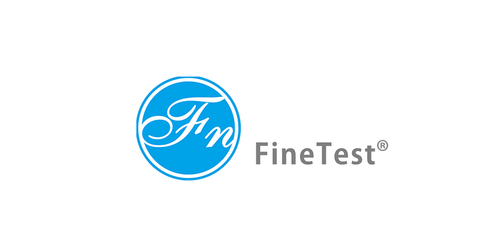Product Description
Mouse Slit homolog 2 protein (SLIT2) ELISA Kit | AE18234MO | Abebio
Species Reactivity: Mouse (Mus musculus)
Abbreviation: SLIT2
Alternative Name: FLJ14420; SLIL3; Slit-2; slit homolog 2
Application: ELISA
Range: 78-5000 pg/mL
Sensitivity: 32 pg/mL
Intra-Assay: ≤4.5%
Inter-Assay: ≤7.2%
Recovery: 1, 06
Sample Type: Serum, Plasma, Other biological fluids
Detection Method: Sandwich
Analysis Method : Quantitive
Test Principale: This assay employs a two-site sandwich ELISA to quantitate SLIT2 in samples. An antibody specific for SLIT2 has been pre-coated onto a microplate. Standards and samples are pipetted into the wells and anySLIT2 present is bound by the immobilized antibody. After removing any unbound substances, a biotin-conjugated antibody specific for SLIT2 is added to the wells. After washing, Streptavidin conjugated Horseradish Peroxidase (HRP) is added to the wells. Following a wash to remove any unbound avidin-enzyme reagent, a substrate solution is added to the wells and color develops in proportion to the amount of SLIT2 bound in the initial step. The color development is stopped and the intensity of the color is measured.
Product Overview: Slit2 plays a vital role in axon guidance by signaling through Robo receptors. Recent evidence suggests that Slit2 protein may function in other settings because human and Xenopus Slit2 has been shown to inhibit leukocyte chemotaxis. SLIT2 protein is a putative ligand for the ROBO receptors. ROBO1 is inactivated by promoter region hypermethylation in <20% of human cancers. Slit2 is an excellent candidate tumor suppressor gene for colorectal cancer,and that it epigenetically silenced in >40% of lung and breast tumors. SLIT2 promoter region methylation was found in 23 (72%) of 32 primary colorectal cancers. In contrast, normal colorectal mucosa from the same patients exhibited significantly lower levels of SLIT2 promoter region hypermethylation.
Stability: The stability of ELISA kit is determined by the loss rate of activity. The loss rate of this kit is less than 5% within the expiration date under appropriate storage condition. The loss rate was determined by accelerated thermal degradation test. Keep the kit at 37°C for 4 and 7 days, and compare O.D.values of the kit kept at 37°C with that of at recommended temperature. (referring from China Biological Products Standard, which was calculated by the Arrhenius equation. For ELISA kit, 4 days storage at 37°C can be considered as 6 months at 2 - 8°C, which means 7 days at 37°C equaling 12 months at 2 - 8°C) .
 Euro
Euro
 USD
USD
 British Pound
British Pound
 NULL
NULL








